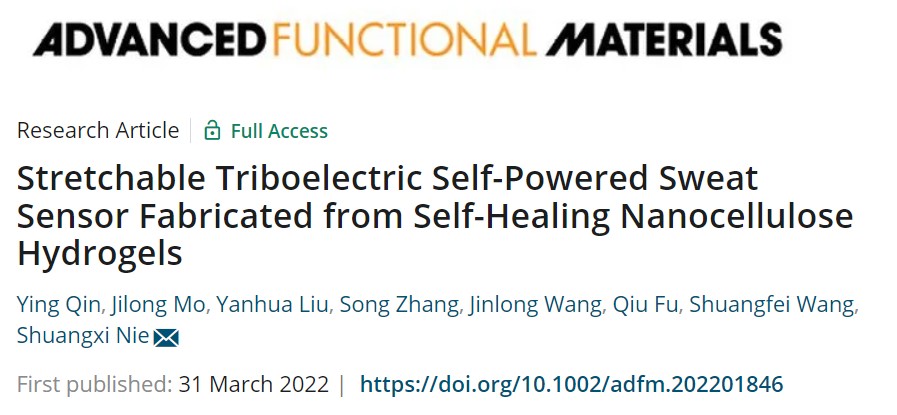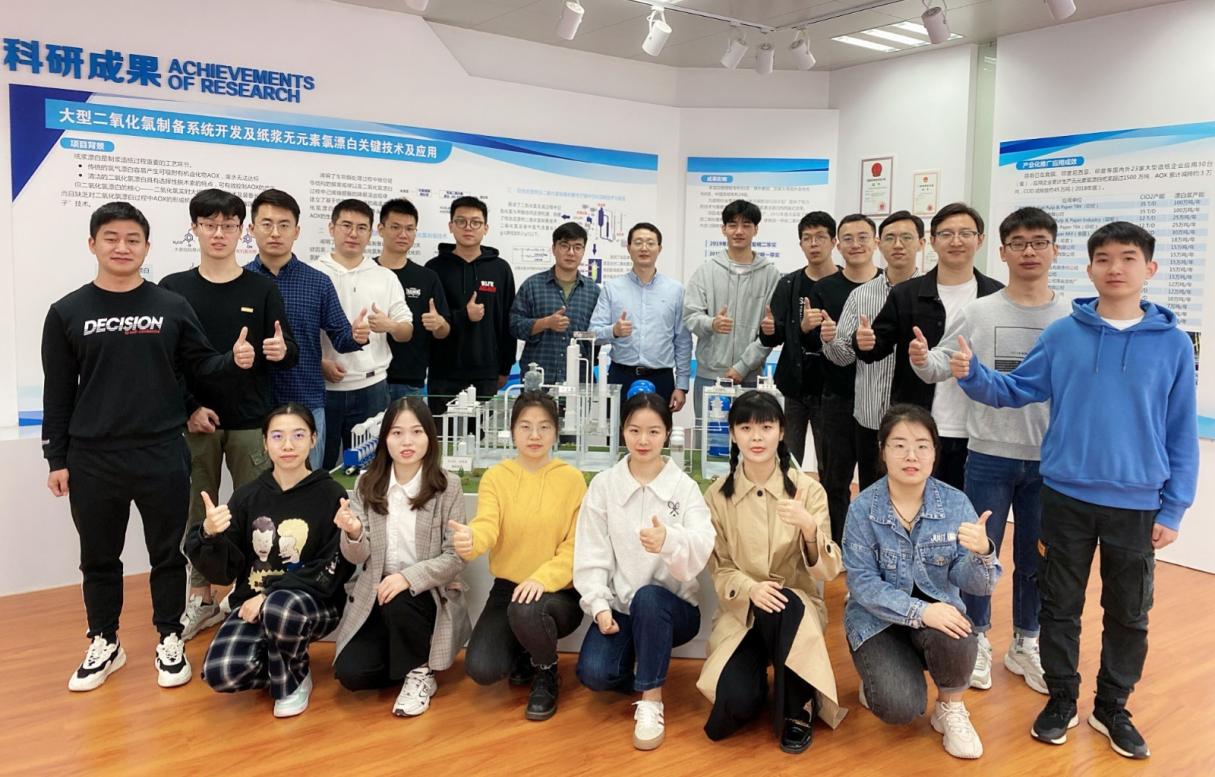https://news.gxu.edu.cn/info/1002/39330.htm
Recently, the research team led by Professor Nie Shuangxi from the School of Light Industry and Food Engineering at our university has developed an advanced functional material: a nanocellulose conductive hydrogels with rapid self-healing capabilities. This material was used as the electrode for a fully flexible self-powered sweat sensor, enabling real-time, self-powered sensing of biomarkers in sweat. This innovation addressed the challenges of self-healing and full flexibility in traditional sensor materials. The research findings were published in “Advanced Functional Materials” with the title of "Stretchable Triboelectric Self-Powered Sweat Sensor Fabricated from Self-Healing Nanocellulose Hydrogels". Guangxi University is the sole contributor to this research, with Qin Ying, a Ph.D. student enrolled in 2018 under Professor Nie, being the first author, and Professor Nie as the corresponding author.
“Advanced Functional Materials” is one of the top-tier journals in the field of materials science, governed by Wiley and indexed by “Nature Index”, in which the Chinese Academy of Sciences Journal Citation Reports (JCR) is categories as the first quartile (Q1). The journal is renowned for reporting breakthrough advancements in materials science, recognized for its high-quality content and significant impact, and is considered a leading academic journal in the field, covering areas such as nanotechnology, chemistry, physics, and biology.

Cellulose is the most abundant natural high polymer material on the earth and is an excellent material for advanced functional materials due to its outstanding modifiability. In this study, Professor Nie's research team enhanced the rapid self-healing performance (achieving over 95% high-efficient stretching and power generation self-healing efficiency within 10 seconds without external stimuli) and tensile properties (up to 1530%) of the hydrogel (CPPH) by using TEMPO-oxidized nanocellulose (TOCNF). The in-situ polymerization of polyaniline on the surface of TOCNF provided CPPH with high electrical conductivity (0.6 S m-1). Applying to flexible wearable sweat sensors, the electrodes of CPPH, based on the triboelectric effect, can detect concentrations of sodium ions, potassium ions, and calcium ions in sweat through the selective permeability of ion-selective membranes and periodic biomechanical vibrations generated by body movements. Experiments have confirmed that the CPPH sweat sensor has the advantages of full flexibility, high sensitivity, high selectivity, and high stability, providing convenience for real-time monitoring of individual health status during exercise and timely warnings.
In recent years, under the leadership of Academician Wang Shuangfei, Professor Nie Shuangxi's research team has been dedicated to the development of advanced cellulose functional materials and the in-depth analysis of their structure-activity relationships. The team has systematically studied the factors influencing the triboelectric performance of cellulose materials and key points, developing critical technologies that directly controlled and permanently altered functional groups on the surface of cellulose at the molecular level. The research has established a comprehensive theoretical system for regulating the triboelectric performance of cellulose, which was of great significance for developing high-performance cellulose-based triboelectric materials. Over 130 papers included in Science Citation Index (SCI) have been published on these research findings in internationally renowned journals such as “Materials Today”, “Advanced Functional Materials”, “ACS Nano”, and “Nano Energy”. In the past three years, these papers have been cited over 3,000 times by international peers, with one selected as Hot Paper and 13 Highly Cited Papers in Essential Science Indicators (ESI). Professor Nie Shuangxi has received several prestigious awards, including the "First Prize of the Ministry of Education's Technical Invention Award" (2018), the "Second Prize of the State Technological Invention Award" (2019), and the "Fok Ying Tung Education Foundation Young Teacher Award" (2020).

Photo of the "Advanced Lignocellulose Materials" research team (with Professor Nie Shuangxi in the middle of the back row)
